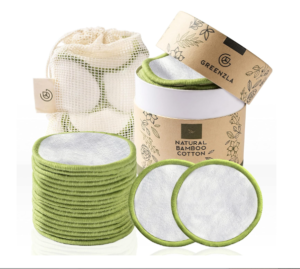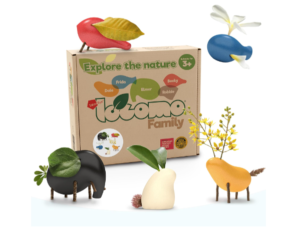Beautiful Plants For Your Interior

Biodegradable Garbage Bag: In today’s world, every house has garbage to throw out. Most of the time, we use plastic garbage bag to throw our garbage but we all know it is very dangerous for our nature. Everyday toss out mountains of trash and garbage in plastic bags but we never think about where does it go?
These plastic garbage bags take hundred of years for decomposing but they didn’t decompose completely . So we have to start using Biodegradable Garbage Bag instead of those traditional plastic garbage bags. Here at https://naturesupporter.com/ we will let you know about why Biodegradable Garbage Bags are our future and why we need to use it?
What is biodegradable garbage bag?
A biodegradable garbage bag is an eco-friendly alternative to traditional plastic bags. Made from materials like cornstarch, vegetable oils, or other plant-based resources, these bags are designed to break down naturally over time when exposed to environmental factors such as moisture and microorganisms.
Unlike conventional plastic bags, which can take hundreds of years to decompose, biodegradable bags typically degrade within a few months to a few years, reducing their environmental impact. They are often used to collect organic waste, which can then be composted along with the bag, making them ideal for sustainable waste management. However, it’s essential to ensure proper disposal in composting or recycling facilities to maximize their environmental benefits.

Why do we need to use Biodegradable Garbage Bag?
These bags are good for our nature and environment. Traditional plastic garbage bags are made from petroleum-based materials and take hundreds of years to decompose. This plastic ends up in landfills and leaks into the environment, causing a massive pollution problem.
Join our Telegram Channel https://t.me/naturesupporter
On the other hand, Biodegradable Garbage Bag breaks down into harmless components within a few months in a composting environment. This significantly reduces plastic pollution in landfills and our ecosystem, nature and environment.
Plastic poses a serious threat to wildlife. Animals often mistake plastic bags for food, leading to ingestion which can be fatal but Biodegradable Garbage Bags decompose naturally, posing no threat to wildlife. They won’t harm animals if they accidentally ingest them.
Biodegradable Garbage Bags break down quickly, allowing organic waste to decompose at a natural speed but traditional plastic bags take hundred of years for decomposition and after decomposing these plastic bags produce abiotic wastages.
Benefits of Biodegradable Garbage Bags
These garbage bags have lots of benefits towards our motherland, nature and environment such as waste reduction, low carbon emission, reusable and recycling.
Waste Reduction
Biodegradable Garbage Bags easily decompose in harmless elements like biomass. These biomass can be use in making food and sometimes it can also produce light. These bags are decomposed with their organic waste. Just because they can decompose very fast, they don’t left wastes.
Carbon Emission
Plastic bags are made from petroleum and bioplastic materials. These plastic bags emits 4 tons of Carbon mission but biodegradable bags emits only 0.8 tons carbon in a year which is 500 times less than plastic bags.

Recycle
These bags are made from 100% natural things such at Jute and Corn starch that’s why it can be recycled easily while those traditional plastics bags are made from Petroleum and bioplastic materials so they are not recyclable.
| Benefit | Description |
|---|---|
| Environmental Impact | Decompose quickly, reducing landfill waste and pollution. |
| Lower Carbon Emissions | Emit significantly less carbon compared to traditional plastic bags. |
| Compostability | Can be composted along with organic waste, turning into nutrient-rich compost. |
| Resource Efficiency | Made from renewable, plant-based materials, conserving non-renewable resources. |
| Reduced Toxicity | Break down into non-toxic elements, minimizing harm to wildlife and ecosystems. |
| Recyclability | Often made from materials like jute and cornstarch, which are easier to recycle. |
| Versatility | Suitable for a variety of waste types, including food and organic waste. |
How biodegradable garbage bag is different from regular garbage bag?
Biodegradable garbage bags differ from regular garbage bags in their material composition and environmental impact. Regular garbage bags are typically made from polyethylene, a type of plastic derived from petroleum, which can take hundreds of years to decompose in landfills. In contrast, biodegradable garbage bags are made from natural materials like cornstarch or plant-based polymers, allowing them to break down more quickly and safely.
Follow us on Twitter https://twitter.com/ntrspt24
| Feature | Biodegradable Garbage Bag | Regular Garbage Bag |
|---|---|---|
| Material | Plant-based (e.g., cornstarch) | Polyethylene (plastic) |
| Decomposition Time | Months to a few years | Hundreds of years |
| Environmental Impact | Lower, compostable | High, contributes to pollution |
| Best Disposal Method | Composting or recycling | Landfill |
Inwaysin Biodegradable Garbage Bag
Inwaysin Biodegradable Garbage Bags are made from EPI-certified eco-friendly materials. It means it decomposes quickly and safely in composting environments. By choosing this product you will be a part for healthier planet.
We naturesupporter.com understand the frustration of leaking garbage bags. That’s why Inwaysin Biodegradable Garbage Bags are made with a thicker material. Combined with our improved octangle star-sealed bottom, they do superior leak-proof performance and increased bearing capacity.
Inwaysin’s 4-gallon garbage bags are translucent in nature and allowing you to easily see and sort your waste. This promotes responsible waste disposal and simplifies your recycling routine.

Buy at amazon https://www.amazon.com/dp/B09MRZWMWF/?tag=naturesupport-20
| Feature | Details |
|---|---|
| Material Feature | Biodegradable |
| Color | White |
| Material | Polyethylene |
| Item Form | Bag |
| Scent | Unscented |
| Item Weight | 1.98 pounds |
Conclusion
Biodegradable garbage bags offer a significant environmental advantage over traditional plastic bags. Their ability to decompose quickly into harmless elements like biomass not only reduces waste but also contributes to sustainable practices, such as composting and energy production. In terms of carbon emissions, biodegradable bags are far more eco-friendly, emitting only 0.8 tons of carbon annually, which is 500 times less than the 4 tons emitted by plastic bags.
These bags are made from 100% natural materials like jute and cornstarch, making them easier to recycle compared to plastic bags made from petroleum and bioplastics, which are challenging to recycle. Overall, biodegradable garbage bags present a greener, more sustainable option for waste management, helping to mitigate environmental impact, reduce carbon footprints, and promote a more circular economy.



